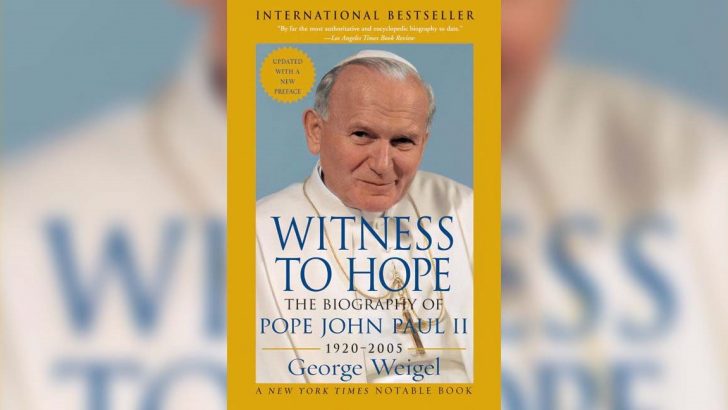On the eve of the new millennium in 1999, the US writer George Weigel published his seminal biography of Pope John Paul II. Mr Weigel titled the 1,000+ page book Witness to Hope because he felt this encapsulated both the Polish Pontiff’s long-standing ministry and his feelings for the Church as we entered the third millennium of Christianity.
While the tide of scandals had already begun to engulf the Church in Ireland, few of us could have imagined then that the scandalous abuse of children and power, and the reckless disregard for basic decency in responding to victims and survivors would sweep through the universal Church and right even to the doors of the Vatican.
These have been dark and difficult decades for the Church in many parts of the world. Just before his abdication in 2013, Pope Benedict XVI reflected on his eight year period on the See of St Peter. “It has been a portion of the Church’s journey which has had its moments of joy and light, but also moments which were not easy; I have felt like St Peter with the apostles in the boat on the Sea of Galilee: the Lord has given us so many days of sun and of light winds, days when the catch was abundant; there were also moments when the waters were rough and the winds against us, as throughout the Church’s history, and the Lord seemed to be sleeping”.
Identify
It is a sense that many of us in the Church in Ireland readily identify with. I’m 42-years-old, and for my entire adult life the Church in Ireland has been marred by scandal and self-inflicted wounds. Many parishioners and those in frontline ministry have ‘borne the heat of the day’ ashamed and embarrassed at how the Church has failed so many vulnerable people while trying to keep alive a sense of hope and a sure knowledge that the Gospel still has relevance in contemporary Ireland and that “we are not the sum of our weaknesses and failures; we are the sum of the Father’s love for us and our real capacity to become the image of his Son” (Pope St John Paul II).
Archbishop of Dublin Dermot Farrell set a positive tone when he named the taskforce for the archdiocese ‘building hope’. It is a daunting task, and one only made all the more challenging by the Covid-19 pandemic. And yet, for the believer – here and now is always the starting place rather than some mythical golden age either in the past or yet to come.
The report sets out the stark challenges facing the Church in the capital not least the age profile of clergy and a decline in the number of those who regularly attend Mass. The report puts it thus: “As we honour the traditions of faith, we must find new ways to accompany the people of the archdiocese, many of whom are distanced from the Church as a result of past failures, as well as by the obstacles to faith created by a secularised culture. All the baptised members of the Church have a right and a responsibility to find new pathways to accompany the people of our time.”
“As we conclude our work,” the report adds, “we have a strong sense of a faith that is alive and hopeful, in a Church that also needs real change”. Key to this ‘real change’ will be helping people to creatively unleash their call to be a disciple of Jesus Christ. All the meetings and programmes in the world won’t renew the Church in Dublin or elsewhere unless people are invited into a relationship with Christ that is life-giving. Vital to this is the tough work of faith formation and helping adults come to a realisation that some of the answers they were given in their childhood are not enough to sustain a living faith in contemporary society. There is hardly another facet of life where we would be expecting the resources that kept us going when we were 12-years-old would last us to old age.
It is an expensive and time-consuming process, but invariably wherever I have gone around Ireland to parishes where small formation and faith development groups are taking off they are bearing fruit. Sometimes we’ve become so used to seeing the Church in terms of the once cultural dominance that we can’t see the value of small grassroots activities.


 Michael Kelly
Michael Kelly